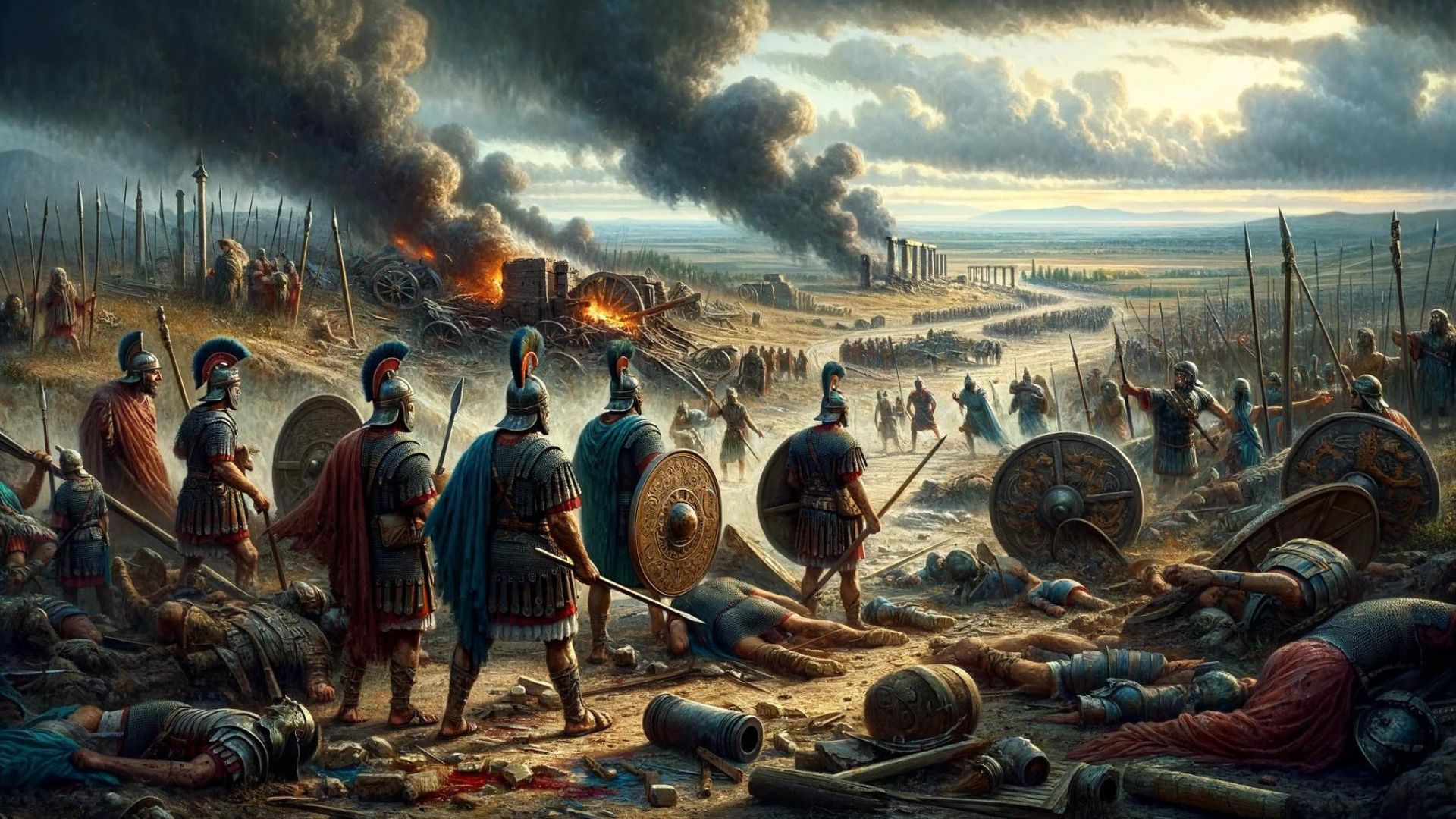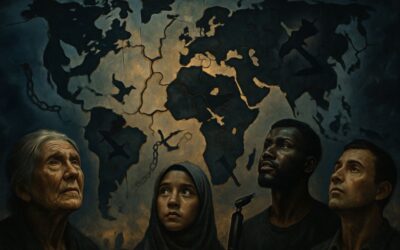Shadow of War: Punic Wars – Carthage and Rome’s Pyrrhic Victories
For centuries, Rome and Carthage were the powerhouses of the Mediterranean world. Rome, a land-based empire, looked out across the sea with ambition. Carthage, a wealthy maritime power, controlled trade routes and harbored a mighty navy. It seemed inevitable that these titans would collide.
The spark that triggered the Punic Wars (fought between 264 BC – 146 BC) may seem small in hindsight – a dispute over the island of Sicily. But the conflict quickly escalated, drawing both sides into a cycle of relentless, bloody warfare spanning decades.
Rome had a formidable army, a knack for discipline and unwavering determination. Yet, Carthage, led by the brilliant (and brutal) general Hannibal, posed a formidable threat. Hannibal dared the unthinkable, crossing the Alps with war elephants to bring the fight directly to the heart of Rome.
The Punic Wars saw moments of astonishing victory and crushing defeat on both sides. Hannibal’s tactical genius devastated Roman legions in battles like Cannae. But Rome refused to yield, throwing more manpower and resources into the war machine, gradually turning the tide.
Finally, after decades of conflict, Rome sacked and destroyed Carthage utterly. However, their triumph held the bitter taste of ash. The Punic Wars had drained Rome’s resources, its social fabric strained, and had sown seeds of internal conflict that would eventually tear at the fabric of the Republic. It was a classic Pyrrhic victory, named after a Greek king who won a battle at such immense cost that it felt more like a loss.
Lessons Etched in Blood
The Punic Wars are more than just historical events. They offer stark lessons we ignore at our own peril:
- The Cost of War: Even the “victor” suffers profound losses – lives, resources, and perhaps a piece of their very soul in the brutality of conflict.
- The Seeds of Hubris: Rome’s victory fueled its expansionist ambitions, leading to further conflicts, and planting the seeds of its eventual decline.
- The Fragility of Peace: Prosperity and dominance are no guarantee of lasting peace. History shows us that rivalries, envy, and the hunger for power are a constant threat.
A Call to Action
The echoes of the Punic Wars resound in modern conflicts. Yet, we have the power to learn from this painful history. Instead of war, let’s strive for:
- Diplomacy and Dialogue: Tirelessly pursue negotiations, even with our fiercest rivals. True strength lies in finding common ground, not the battlefield.
- Building Bridges: Foster trade, cultural exchange, and understanding between nations. When we see each other as people, not just enemies, conflict becomes less likely.
- Rejecting Glory in War: Challenge narratives that paint war as heroic. Let’s always see its true cost, and honor true heroes – the peacemakers.
History teaches us that peace is never a given; it’s a choice we must actively make every day. May the staggering cost of the Punic Wars inspire us all to choose a better path.
Why Should You Care?
- History isn’t dead, it’s alive: The Punic Wars shaped the ancient world, and their echoes linger in modern conflicts, geopolitics, and how we think about war and peace.
- Understanding the futility of war: Even when there’s a “winner”, the cost in blood, treasure, and societal wounds can render any victory hollow and destructive.
- The timeless call for diplomacy: The brutal Punic Wars remind us that there must always be a relentless pursuit of peaceful alternatives, no matter how difficult they may seem.
Key Takeaways
- Brutal clash of titans: The Punic Wars pitted Rome and Carthage, two superpowers of the ancient world, against each other in a bitter struggle.
- High cost for all: War inflicts deep wounds on both the victor and the defeated, draining resources and sowing social instability.
- Pyrrhic victory: A win so devastating that it’s barely distinguishable from defeat – a key concept born from the Punic Wars.
- Hannibal’s genius, Rome’s resolve: The Punic Wars showcase Hannibal’s tactical brilliance and Rome’s unwavering determination.
- War plants seeds of decline: Even a victorious power like Rome faced internal strife and eventual decline, fueled in part by the Punic Wars.
Keywords
- Punic Wars: A series of three wars between Rome and Carthage (264 BC – 146 BC), fought over dominance in the Mediterranean.
- Carthage: A powerful North African city-state, Rome’s main rival for Mediterranean supremacy, known for its seafaring prowess.
- Rome: An emerging Republic that became an empire, known for its disciplined army and expansionist ambitions.
- Sicily: The island whose contested ownership sparked the first of the Punic Wars.
- Hannibal: Brilliant Carthaginian general who daringly attacked Italy, delivering crushing defeats to Rome early in the conflict.
- Battle of Cannae: A devastating Roman defeat by Hannibal, a textbook example of superior tactics overcoming larger numbers.
- Mediterranean: The sea at the heart of the Punic Wars, a battleground and a trade highway of immense strategic importance.
- Pyrrhic victory: A victory where the costs outweigh the gains, named after King Pyrrhus of Epirus, who won against Rome at great cost.
- War elephant: Fearsome weapons used by Hannibal, their psychological impact often outpacing their effectiveness in battle.
- Decline of Rome: The Punic Wars, while won by Rome, contributed to its later internal conflicts and eventual collapse as an empire.
Frequently Asked Questions
- What happened to Carthage after the wars? Rome utterly destroyed the city, salting the earth, and selling survivors into slavery.
- Were there any attempts at peace? Yes, but truces were short-lived as rivalry, mistrust, and fear always reignited the conflict.
- Could Rome have lost? Absolutely! Hannibal came close to breaking Rome, but ultimately lacked sustained support from Carthage itself.
Myth Buster
- Myth: Wars bring lasting glory.** Reality:** The Punic Wars show that even “glorious” victories lead to instability and pave the way for future conflicts.
Let’s Talk
- Is war ever truly justifiable? If so, under what circumstances?
- Can modern nations learn from the concept of the ‘Pyrrhic victory’?
- If you could travel back in time, what advice would you give to leaders on both sides of the Punic Wars?
Let’s keep the conversation flowing! Share your thoughts in the comments below.










0 Comments